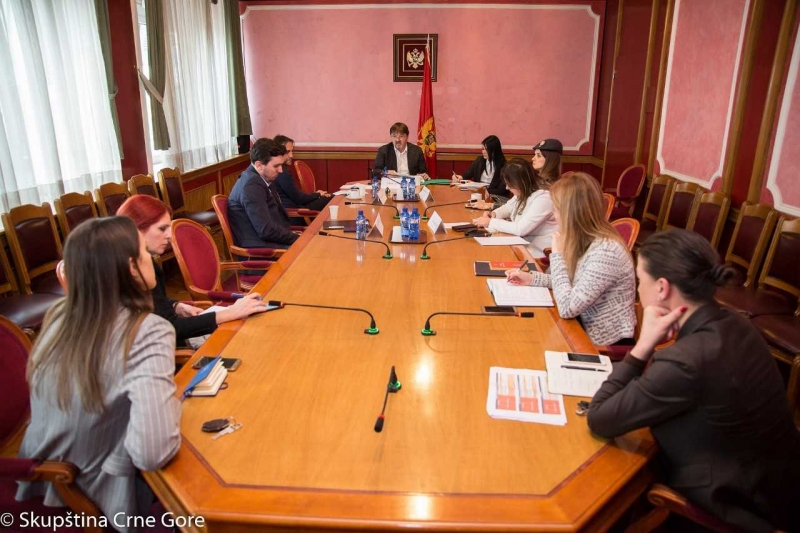Working Groups of the Committee on Further Reform of Electoral and Other Legislation continued to work, and six meetings were held during this week, where MPs, representatives of the NGO sector and members of the academia discussed the work methodology and activities that the working groups of the Committee would deal with in the period ahead, with the aim of preparing legal solutions and their referral to the Committee for consideration.
During the meetings, MPs expressed full commitment to the work in the working groups and pointed out that they expected the return of their colleagues from the opposition, stressing that the Committee was formed with the aim of establishing a dialogue and strengthening electoral trust. Representatives of the NGO sector (Mr Dragan Koprivica – Centre for Democratic Transition, Mr Danilo Kalezić – Network for Affirmation of Non-Governmental Sector, Mr Boris Raonić – Civic Alliance) and the academia (Mr Đorđije Blažić and Mr Boris Bastijančić) pointed out as well that the presence of the opposition made working groups more constructive and more complete.
At working group meetings it was agreed that the work methodology would be based on a thorough analysis of the current legal framework with an emphasis on the consideration and application of good practices in the field of electoral legislation of the region and the countries of the European Union. All members of the working groups agreed that it was necessary to include competent institutions falling under the scope of individual laws in the field of electoral legislation (the Agency for Prevention of Corruption, the State Electoral Commission, the Radio and Television of Montenegro, etc.). It was also concluded that the experiences of the previous working group from 2016, operating within the Parliament and dealing with the issues of electoral legislation, would also be a good basis for further upgrading of electoral legislation. The members of the working groups also agreed that one of the key challenges in the work of the Committee would be the efforts to implement recommendations from the OSCE/OIDHR report, an international institution dealing with monitoring of elections.
The Committee on Further Reform of Electoral and Other Legislation consists of seven working groups that deal separately with a set of laws related to electoral legislation. The key role of working groups is to analyse current and prepare future legal solutions to be proposed to the Committee with the aim of creating an optimal electoral environment.
It was emphasised at the meetings that the efforts of the parliamentary majority, representatives of the NGO sector and the academia must be strengthened by the presence of the opposition in the Parliament and the Committee, because this has been a necessary condition for the required majority for holding of meetings and decision-making of the Committee. Due to the complexity and the amount of work, certain deadlines have been set as a goal, making active and efficient work of the working groups of great importance for the further work of the Committee.
The main goal of working groups is to define proposals to be discussed later by members of the Committee, consisting of seven representatives of the ruling coalition and the opposition. The Chairperson of the Committee is Mr Branimir Gvozdenović, Vice President of the Parliament, and Mr Strahinja Bulajić, MP from the Democratic Front, the Deputy Chairperson.












